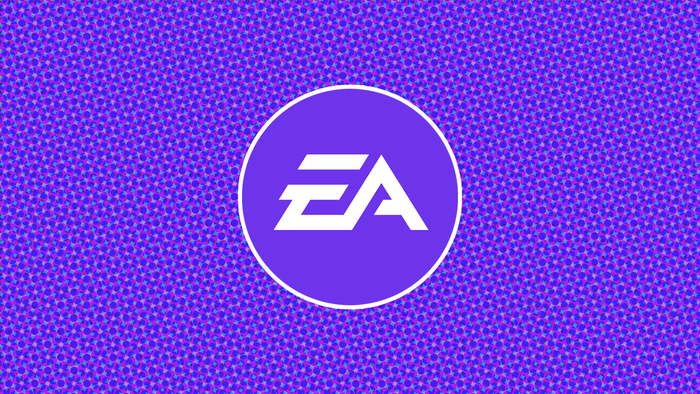Why Stadia is Google Plus and Glass Combined
Google Stadia hasn't fully considered timeless gamer behavior while also being too ahead of its time. The unnecessary Stadia controller seems to be a sign of an idea running away with itself—leaving data-driven reality far behind.

Where I'm from, any seasoned businessperson starts hearing alarm bells when they're being pitched a cure-all. It just can't be real. History has taught us that since alchemists started searching for the philosopher's stone.
So while I'm optimistic about Google Stadia, I'm skeptical about it being video gaming's 'Magnum Opus' till date. Its vision is too perfect.
I place Stadia right next to Google+ for its failure to read social behaviors properly. I know. Google has influence and zettabytes of data at its fingertips. Nevertheless, trying to supplant an entire industry's habits is on the sillier side of foolhardy. Not to mention the technical limitations.
And I also place Stadia right next to Google Glass. Great innovation, marvelous tech, but too ahead of its time for mass adoption. Please believe me, I'd love nothing more than to be incorrect about that.
But correct me if I'm wrong as I explain where Google Stadia misses the mark.
The Tortoise & The Hare
Aesop's fable teaches us a timeless lesson: slow and steady wins the race.
Google is only now just dipping its pinky toe into the video gaming pool. Its rivals? Titans, slow-moving, but with generations of experience. That counts. It counts not only because Nintendo, Sony, Microsoft and their counterparts are game industry veterans. It counts because of the trust that they've built with consumers and the culture they've engendered.
The point is, don't overestimate Stadia and underestimate the competition. There's more than one example of when Google played the hare and raced the tortoise. But the one that stands out to me is Google+.
G+ was a demonstration of Google's failure to understand that a complex 7-year habit can't be switched overnight with an equally complex alternative.
There are multiple layers of gaming habits that are hardwired to the majority of gamers. Subliminal tidbits. The adrenaline from Stadia's exciting announcements have flushed them out for the moment.
I'm betting that—just like when we checked out G+ and then scurried back to Facebook—we'll try Stadia and revert quickly. Why? The answer is really simple: it's too cozy right where we are.
You want Stadia's dream, not Stadia.
Of course you want to be able to play the latest and greatest video games without worrying about hardware. It'd be like plugging into Ready Player One—everything's set to go.
But you've built a library of games on your consoles and PCs. Your backlog is yea long, your achievements are yea high, and your configurations are just right. You didn't do all of that to abandon it for games that don't even have the courtesy of sitting on your own hardware.
Wait. What was that? Games that aren't sitting on your own hardware? Oh yeah, that's right. A subscription service, or something. You won't have a collection of games anymore. You'll lose access to whatever games you were just playing if you stop paying the bill.
Or should I say 'bills'? Because not only will you be paying your Stadia subscription (or something), but your internet service providers are about to get richer too. And, of course, that's if your region even services that kind of internet data. And, of course, that's if you remain in that region.
Let's say you're one of the lucky few, blessed with bountiful internet data. You're not going to pour months diving deep into any single game are you? Come on, you're paying a subscription service (or something)! There's plenty more to play—just a click away!
So get ready for game-hopping. It may not be your style, but you'll have to evolve quickly. Otherwise, it's going to be very difficult to explain the cost of that Stadia subscription (or something) to your balance sheet.
Speaking of balance sheets, I'd like to speculate on why Google hasn't revealed any information about the price(s) associated with Stadia. Now, please bear with me, as this is obviously just conjecture. That notwithstanding, I'd like to posit the most logical theory that occurs to me:
They're clueless.
Google would probably sooner solve the Riemann hypothesis than figure out a sustainable revenue model for Stadia. Because Google of course knows that we're pre-protesting having our paid gaming experiences interrupted by ads. No extra revenue on that front. At least gamers won't tolerate it for too long.
And if you're thinking to compare console and PC gaming subscription services, know it's a false analogy.
And no. I doubt there's some genius financial framework to reward game publishers proportionate to buy-in and engagement on Stadia. If there was, that would have been a key talking point right now. It's a lot stronger—or at least just as strong—as this game streaming service that makes us worry about bandwidth and lag.
And it's a lot stronger than what Ubisoft CEO Yves Guillemot told GameSpot:
"I think we will have a multitude of ways. Either you buy full price and you play; or you will be able to also register, possibly, to play either one hour or two hours a day. There will be plenty of ways."
N.B.: Do you think or do you know? That's why I've been writing 'subscription service (or something)'.
So what this means is that game developers are going to get cold feet. Indie game developers are going to get colder feet. And, perhaps, blockchain will save the day. In fact, if Stadia's secret to pricing is cryptocurrency-related, I'd have to revise my whole theory. I doubt it though.
How Stadia could be groundbreaking.
As I mentioned at the beginning, I am optimistic about Stadia. I'm just chronically allergic to panacea pitches. I also feel that Stadia really shouldn't go guns blazing into the fray. Google may be a giant, but against the creative forces of gaming's titans, it's like a baby to a battle mech. No exaggeration.
This is how I think Stadia could be a winner.
(1) First-Party / Flagship Game
I find it a very cautionary indicator that Google announced Stadia Games and Entertainment but failed to announce even a single game in development.
Google is worth gigabucks. What they should've done, with learning from their traditional counterparts, is announced a brand new game on Stadia.
As a matter of fact, they should have just developed a lovely new AAA title and presented it to us on Stadia. They could've made it free and garnered all the trust and buy-in from gamers. This would've been a lot cheaper than all that hardware they're developing without a market-validated proof-of-concept.
And for the record, Google could have just waited with the Stadia controller. Your target customers already have input devices. Make sure they like what you're offering before investing in—unnecessary—proprietary hardware. This is how Google hints me that they're making a mistake. When you can tell that they've let an idea run away with itself and leave reality behind. They can afford it, though.
Perhaps Stadia indeed has a secret flagship game in the works that they'll sweep us off our feet with.
(2) Download Option (with DRM)
We understand that Stadia doesn't want us to worry about hardware. Unfortunately, several gamers love worrying about hardware. Gearing up for gaming is part of all the fun. Especially for PC gamers.
Not only that, gamers want their collection. They want it nice and organized, and they want to be able to scan through it whether they're subscribed or not. In this case, gamers won't want their game collection chained to both Stadia and an internet connection.
So perhaps Stadia will give us some sort of a client. Something for those of us—and we'll be many—that want the option of downloading our games and accessing them on our own terms. Stadia could get creative with DRM. We just need to know that we'd be able to hibernate in the post-apocalypse with a power generator and our gaming gear and play.
(3) Opt-In Subscription
The subscription that Stadia has been talking about will hopefully just be an option. I think it will work out a lot better if gamers and developers are allowed to decide how they want to engage with the platform. This will allow Google to experiment better with pricing while not putting off developers.
And just to add, if indie and AAA games are going to coexist on Stadia, a rigid subscription structure will simply not work. At least we now know we won't see that.
Still, I honestly don't see indie games on Stadia (from its current pitch).
(4) Baby Steps
Since Stadia has all the luxury of resources and time on its side, why not crawl before running? Rolling out bit by bit would give them time to test the waters as well as educate their player base on each facet of their vision. Old habits die hard.
Oh well. I've rambled in the name of ruminating, but trying to make sense of vague information is no easy task. Perhaps, that's the entire point.
Google could have gone to GDC saying "Stadia—any game, anywhere." And there's a clear call to action.
But Google Stadia is promising to be a series of value-adds and the elixir of gaming. I so want to believe them. Perhaps I'll have to be satisfied with eventually being proven wrong.
Read more about:
BlogsAbout the Author(s)
You May Also Like













